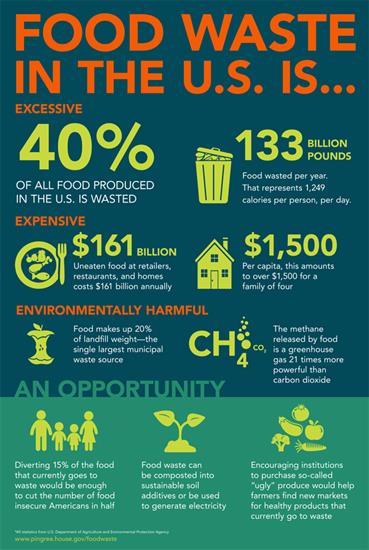Press Releases
Responding to Rep. Pingree’s 2017 Request, Federal Government Issues Food Waste Report
Washington,
June 21, 2019
Following a request for study made by Congresswomen Chellie Pingree (D-Maine) and Rosa DeLauro (D-Conn.) in October 2017, the Government Accountability Office (GAO) today issued a report with recommendations on how the federal government can expand its efforts to reduce food waste. Pingree praised the GAO report titled “Food Loss and Waste: Building on Existing Federal Efforts Could Help to Achieve National Reduction Goal” saying it “provides a clear roadmap for the federal government that will help to maintain the significant momentum around food waste reduction in the U.S.” “40 percent of the food produced in this country ends up in landfills where it contributes to greenhouse gas emissions and worsen our climate crisis. Oftentimes that food is perfectly edible and healthy, and it could be feeding hungry people across the country,” said Rep. Pingree. “From a social, environmental, and economic perspective, we must do more to reduce food waste. We owe it to future generations to reduce as much food waste as possible to prevent further damage to the world we are living in.” The report calls for more collaboration between the three federal agencies that most directly work on food waste reduction: the U.S. Department of Agriculture (USDA), the U.S. Environmental Protection Agency (EPA), and the U.S. Food and Drug Administration (FDA). Specifically, GAO recommends that the three agencies:
In October 2017, Pingree and DeLauro sent a letter to GAO—an independent, nonpartisan agency—to request a report focused on ways that the federal government could further reduce food waste. According to the USDA’s Economic Research Service (ERS), 31% of the country’s available food supply went uneaten in 2010—nearly 133 billion pounds of food—resulting in a $161 billion economic loss. The USDA and the EPA launched the U.S. Food Waste Challenge in June 2013, which provides access to information on proper reduction, recovery, and recycling of food waste, and announced the first-ever national food waste and loss goal in September 2015: a 50% reduction in food waste and loss by 2030. In April 2019, USDA, EPA and FDA announced a federal interagency strategy to reduce food waste. Pingree is a recognized policy leader on food waste reduction. The 2018 Farm Bill included her provisions to create the first full-time food loss and waste liaison at USDA, a composting and food waste reduction pilot program, as well as the Local Agriculture Market Program (LAMP) to reduce on-farm waste. In the Fiscal Year 2020 Agriculture, Rural Development, FDA, and Related Agencies Appropriations Bill, which was debated on the House floor this week, Pingree secured $400,000 for the food loss and waste liaison and $1 million for the composting and food waste reduction pilot program. In the spring of 2018, Pingree launched Congress’s first-ever Bipartisan Food Recovery Caucus with former Congressman David Young (R-Iowa), where she currently serves as co-chair with Congressman Dan Newhouse (R-Wash.). |


